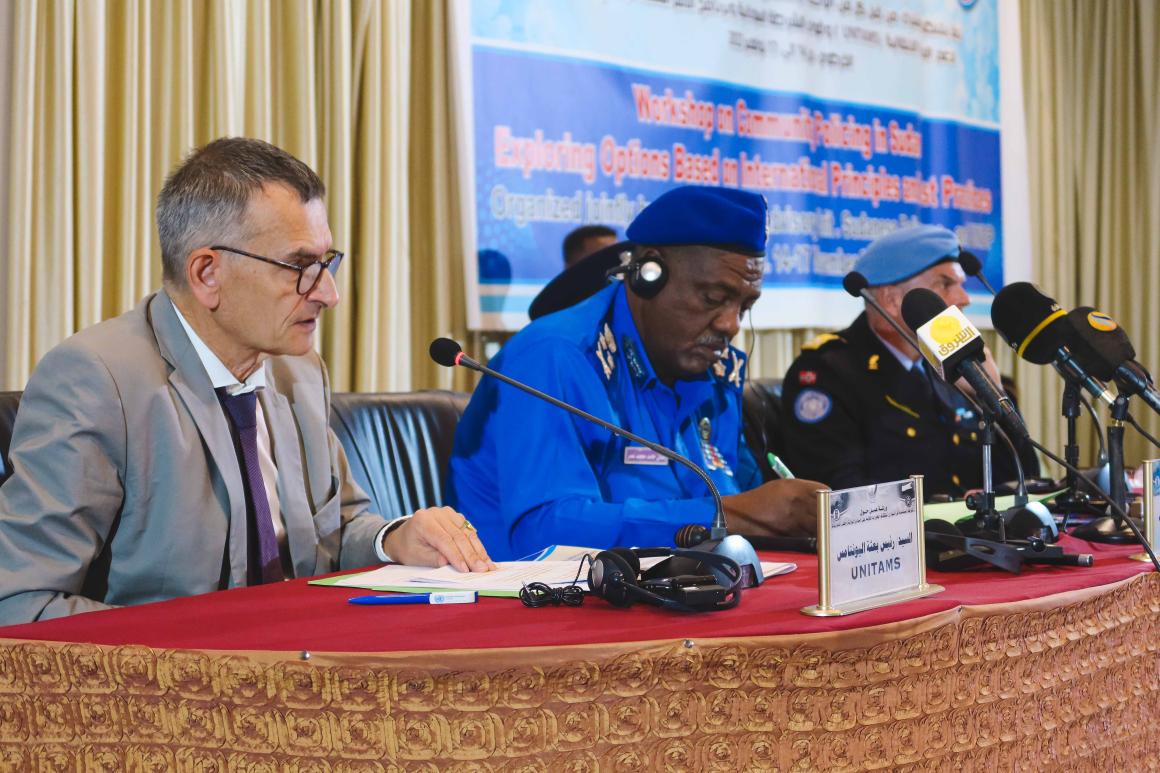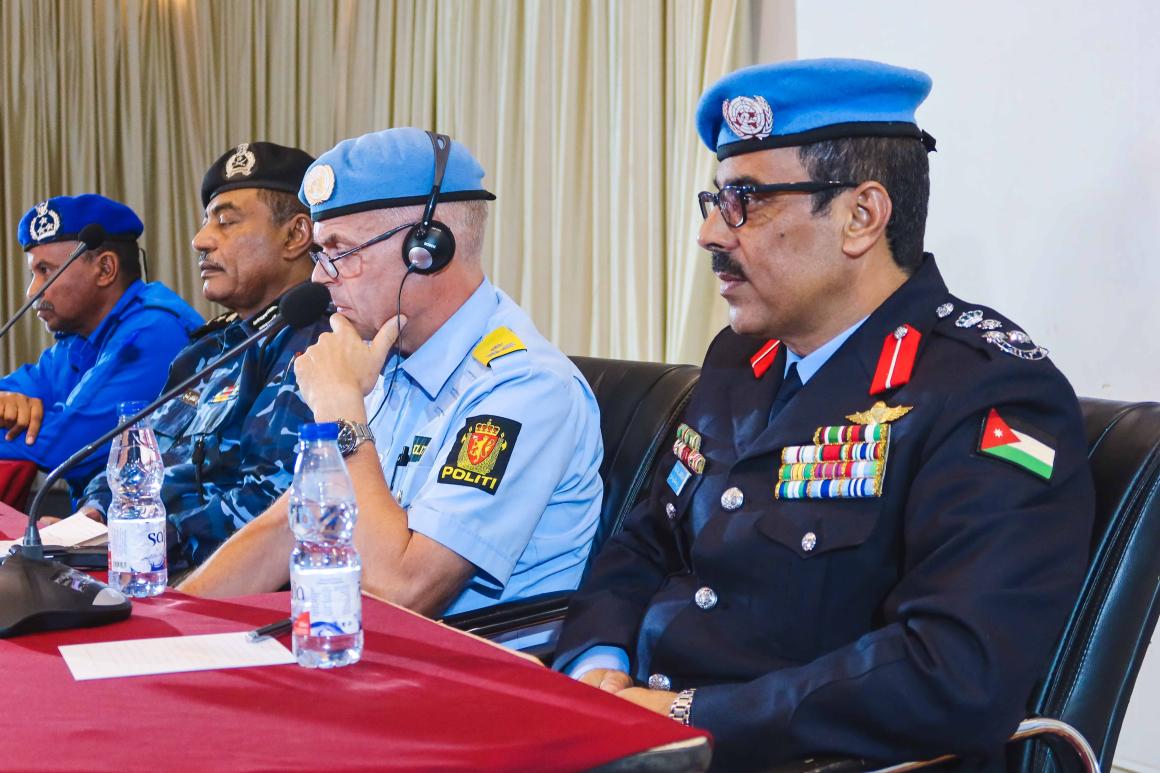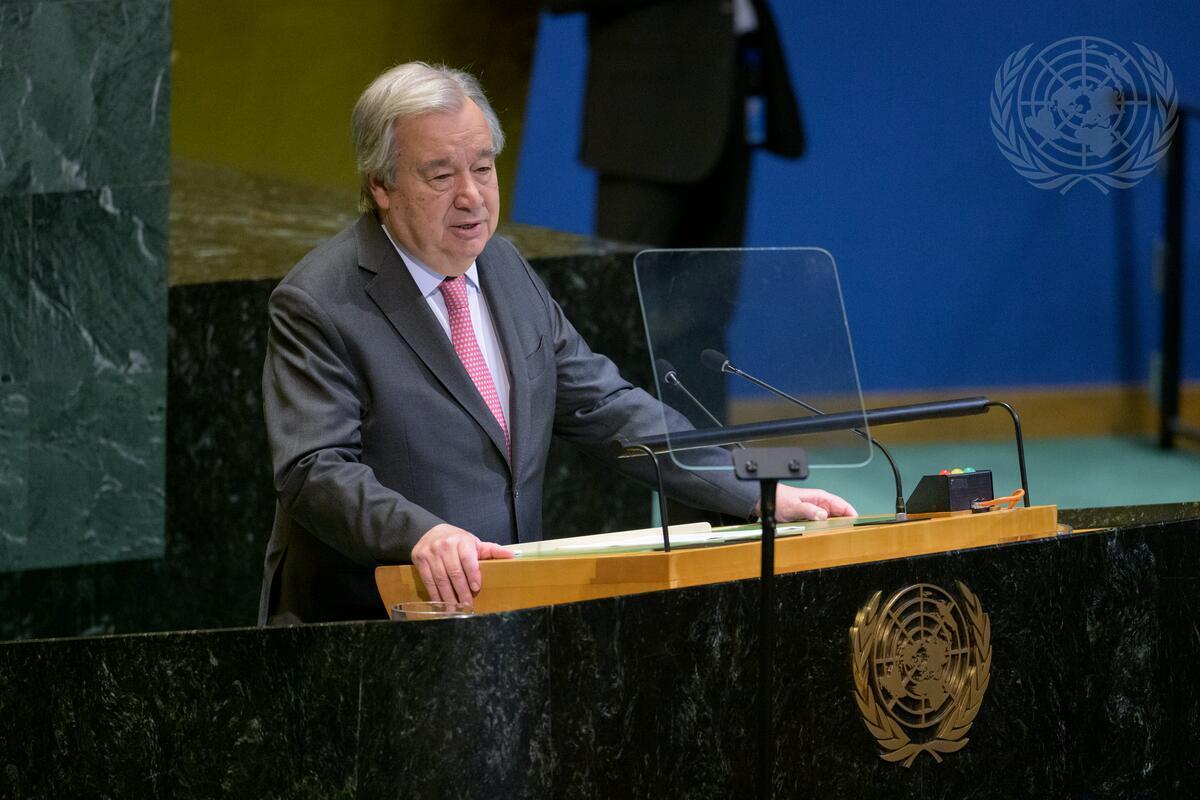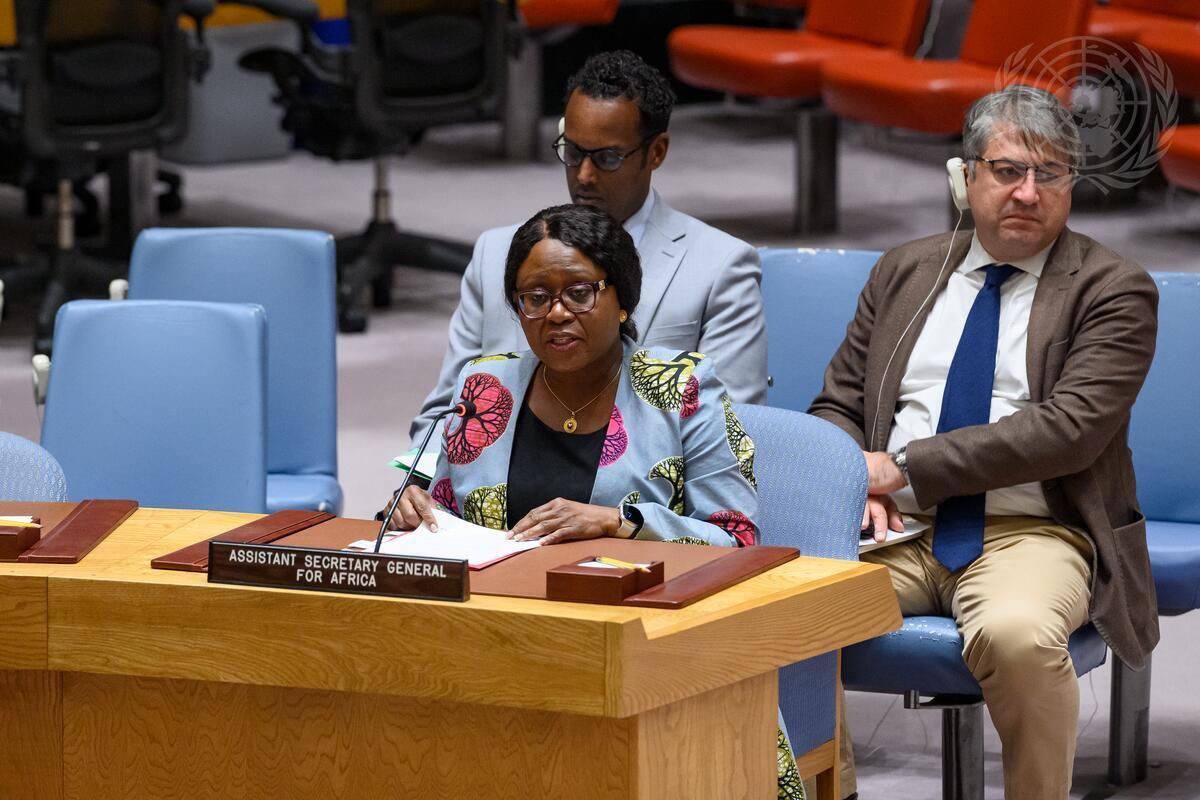The fundamental principles, concept and approach to community-oriented policing were the key topics of a four-day workshop held in Khartoum from 14 to 17 November 2022.
While a Community-Policing Department has recently been established within the Sudanese Police Force (SPF), the United Nations Integrated Transition Assistance Mission in Sudan (UNITAMS), in close coordination with the United Nations Development Programme (UNDP) and the SPF, brought together Sudanese police officials, civil society and native administration representatives, youth and women groups from all states who discussed the best possible ways to bring policing in Sudan closer to international standards and best practices.
Special attention was paid to community-oriented policing — a model which is based on police and communities working as partners to provide accountable and responsive security.

“Everywhere in the world, the police service mirrors the entire ruling system. The direct engagement between the police and the public is a reflection of the relationship between a government and the citizenry. Community-oriented policing is envisioned as part of a broader process of democratization and inclusive governance where citizens are partners to the police and all public institutions meant to serve the Sudanese communities," said the Special Representative of the Secretary-General in Sudan, Volker Perthes.
UNITAMS’s work on community-oriented policing derives from its mandate to “support the government of Sudan's capacity to extend state presence and inclusive civilian governance through strengthening accountable rule of law and security sector institutions, and building trust between state authorities and local communities, including through community-policing initiatives”.
The participants in the workshop had in-depth exchanges on the implementation of the concept of community-oriented policing in Sudan and on past grievances regarding the relationship between the police and the local communities.

"We are here to explore a strategy that is aligned with international practices in the context of Sudan. Community-oriented policing involves the police and the community working together. In other countries, community-oriented policing has proven to be an effective strategy and an instrument that serves both the community and the police," said UNITAMS Police Commissioner Terje Loeland.
The participants in the workshop also shared their concerns about the newly established Community-Policing Department within the Sudanese Police Force.
"We are aware that comparisons have been made between the newly established community-policing Department and past experiences that had the same title in Sudan. This comparison is not valid as the current Community-Policing Department is meant to work with the communities where the state presence might be limited due to diminished capacity. It is not a law; it is a partnership between the communities and the police," said Mohammed Salih Mohamed Salih, the Head of the Sudanese Police Force’s Community Policing Department.
Participants stressed the importance of adopting an inclusive approach to ensure the community-oriented policing is conducive to sustainable and accountable security at the community level.
"Youth are an integral part of communities’ safety. They have been an active agent in the past and will continue to be so. However, the current political crisis has been affecting the trust between the communities and the police, therefore, trust building should be the first step towards such an initiative," said Hassan Al Dai a participant from a youth group.
At the end of the workshop, UNITAMS suggested recommendations such as the development of a Standard Operating Procedure and of an implementation plan on community-policing in Sudan as well as the establishment of partnerships with universities and the Sudanese civil society, including women and youth groups.
UNITAMS also recommended conducting a study to understand the negative impact of previous experiences of the community policing in Sudan and how to avoid them in the future.
"We will train trainers and we will do our best to reach all states. The community-oriented policing we support at the United Nations is a model of police work; the community-oriented policing we believe in is about serving the community and is based on communication channels and partnership between the communities and the police. This mechanism enhances the police’s accountability and responsibility," said Iyad Jarrah, UNITAMS’s Police Capacity Building Coordinator.
Finally, UNITAMS will support the Sudanese Police Force in rolling out community-oriented policing pilot projects in several Sudanese localities that align with the international principles and best practices. This will be followed by a joint evaluation with a view to expanding the implementation of the approach in accordance with international principles and guidelines.






